AlDecha Coffee — Abu Dhabi, United Arab Emirates
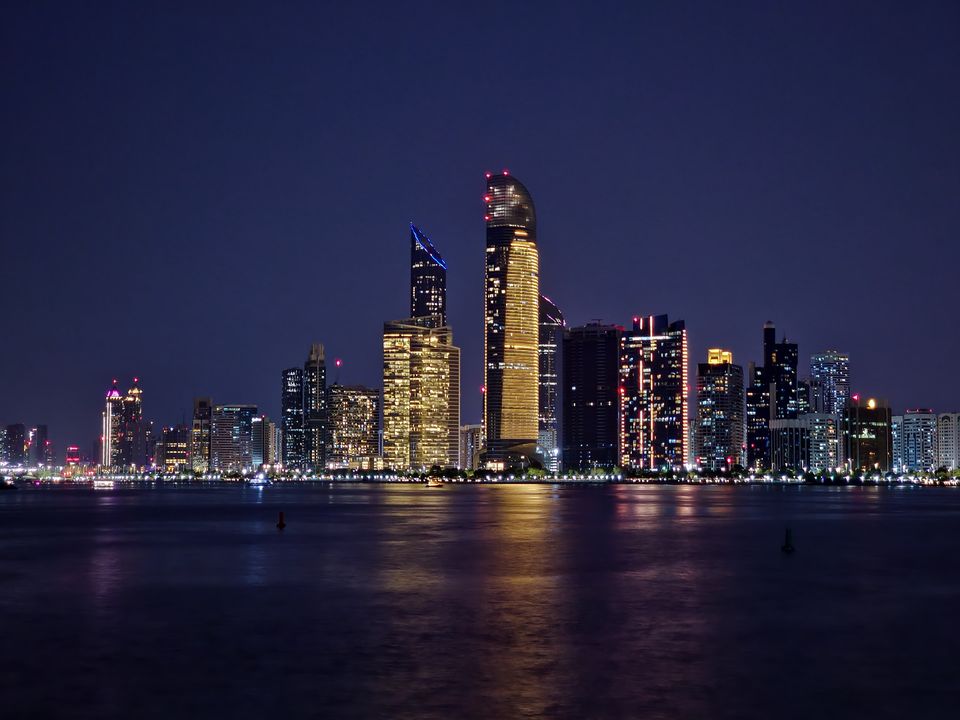
Abu Dhabi, United Arab Emirates 🇦🇪
United Arab Emirates, my favorite neighboring country that I love to visit from time to time. The country keeps surprising you every time you visit it. The luxury, the style, the organization, and the sense of community is what comes out strong in this beautiful country. Two cities I keep in my list of trips on a regular basis, but one took my heart and feels more “me” than the other. Dubai is always a great city to spend time in, but Abu Dhabi is the one that is dear to my heart.
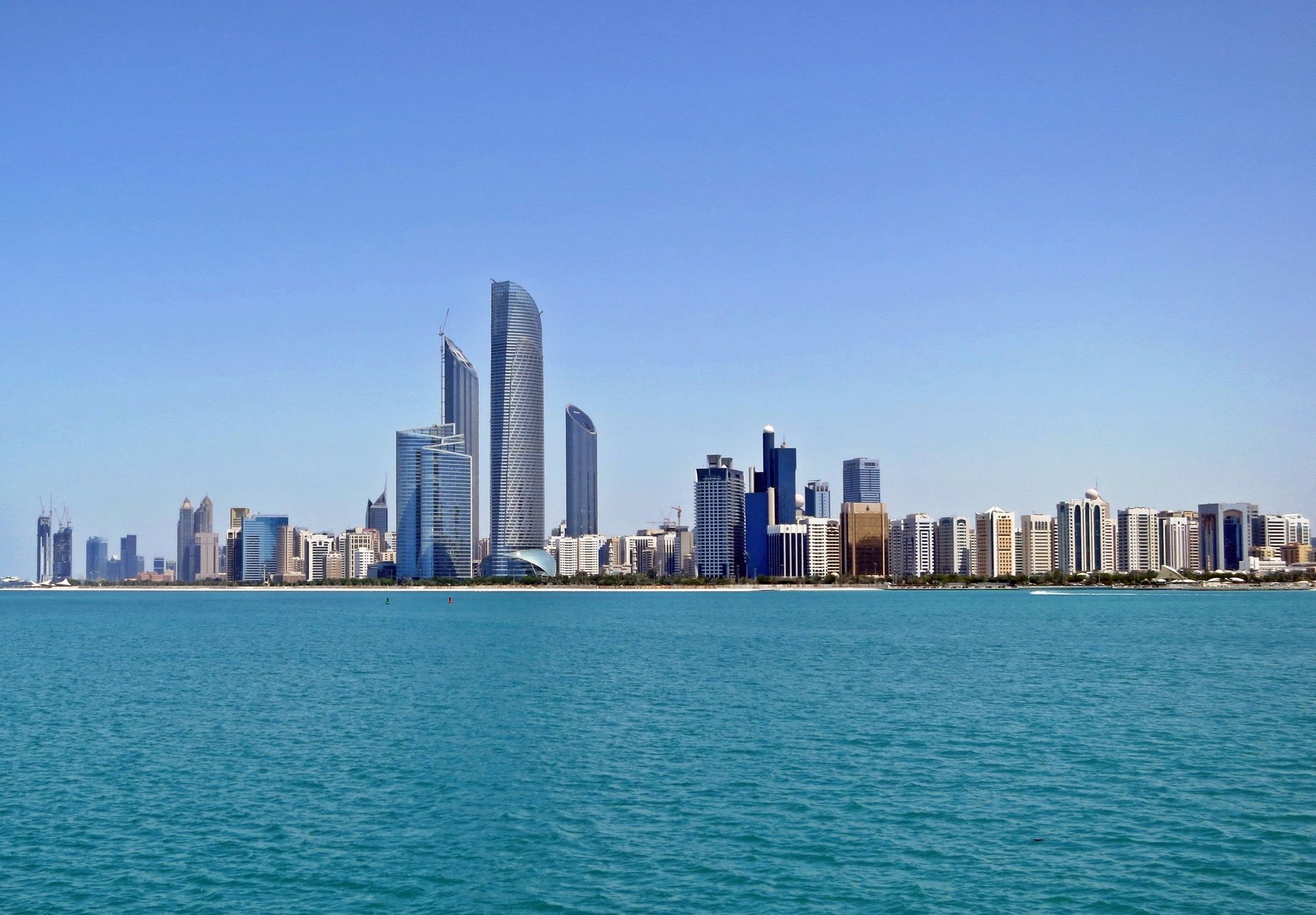
Abu Dhabi is the capital and the second-most populous city of the United Arab Emirates. The city of Abu Dhabi is located on an island in the Persian Gulf, off the Central West Coast. Most of the city and the Emirate reside on the mainland connected to the rest of the country. As of 2020, Abu Dhabi's urban area had an estimated population of 1.48 million, out of 2.9 million in the emirate of Abu Dhabi, as of 2016.
— Wikipedia
I visited the city of Abu Dhabi 3.5 times in my life. You might wonder why I said 3.5, and not 3 or 4 times. This is because my first ever visit to it was only for a transit trip to Dubai. The other three trips were solely dedicated to it, nothing attached. Each of these times I was visiting for a different reason. The transit one was a business trip for attending a conference in the country. The second was for a leisure trip with my family. The third was along with one my friends to disconnect from our lives and entertain. The last one was a solo trip that I found refreshing to my mind and sole.
AlDecha Coffee — Pin 📍
In my last trip to Abu Dhabi, I dedicated a good amount of my time to touring the coffee shops of the city. I would spend at least an hour or two in a place, enjoying my solitude while reading, writing, or simply being just there. A cafe that got my attention was this cozy little one nestled in the channels of Al Raha beach. It is called “AlDecha” and is pronounced “الدچة” in the local slang of the Emirates people.
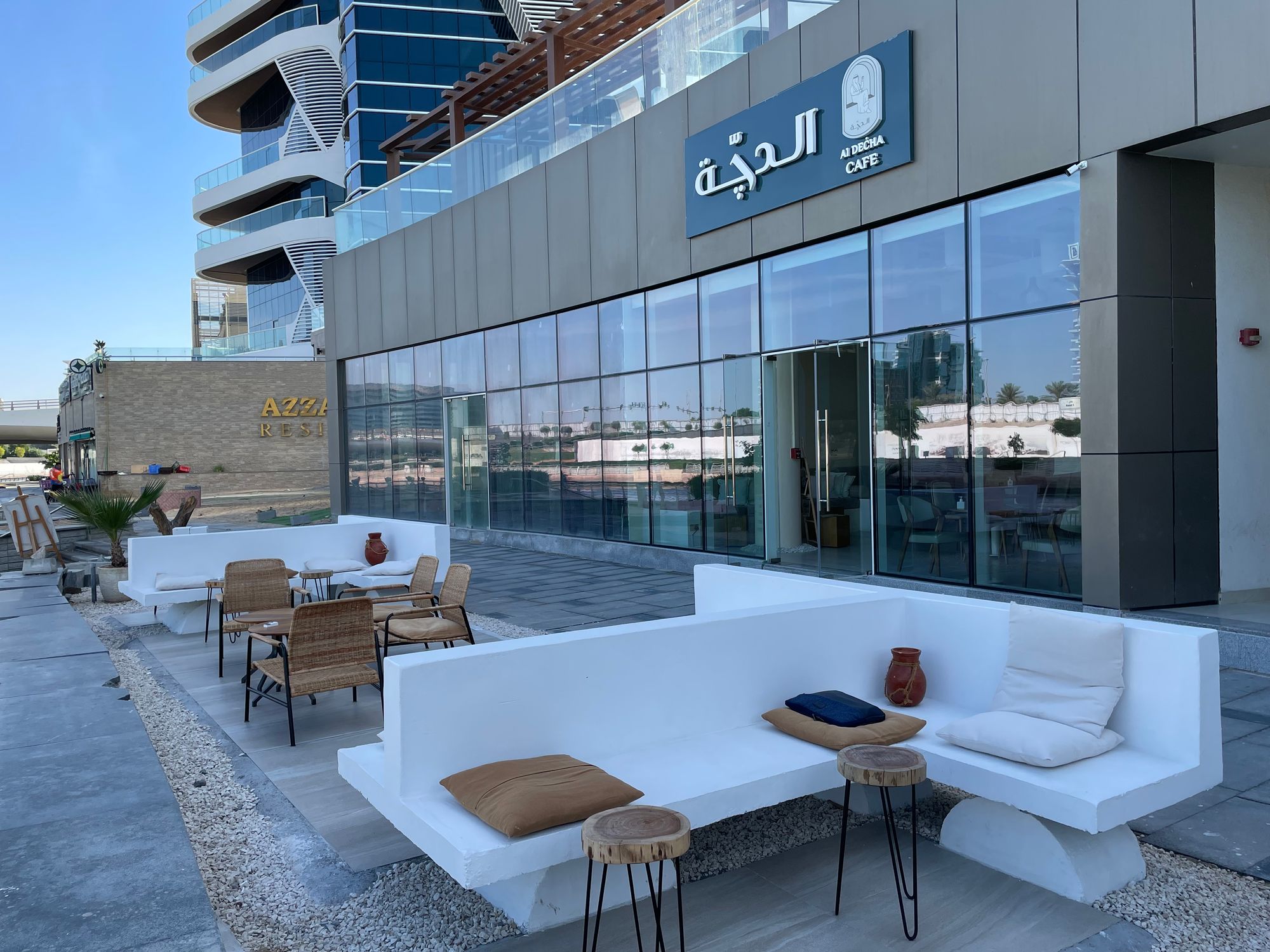
My timing in visiting the cafe was simply super. It was January, the winter season in a costal city, which makes weather cool and refreshing. Temperatures are in the range of 20-25 degrees which makes it great for outdoor settings. I ordered my usual Cafe Latte along with something sweet on the side. I took my place in the outdoor “decha” and spent a couple of hours, reading and journaling.

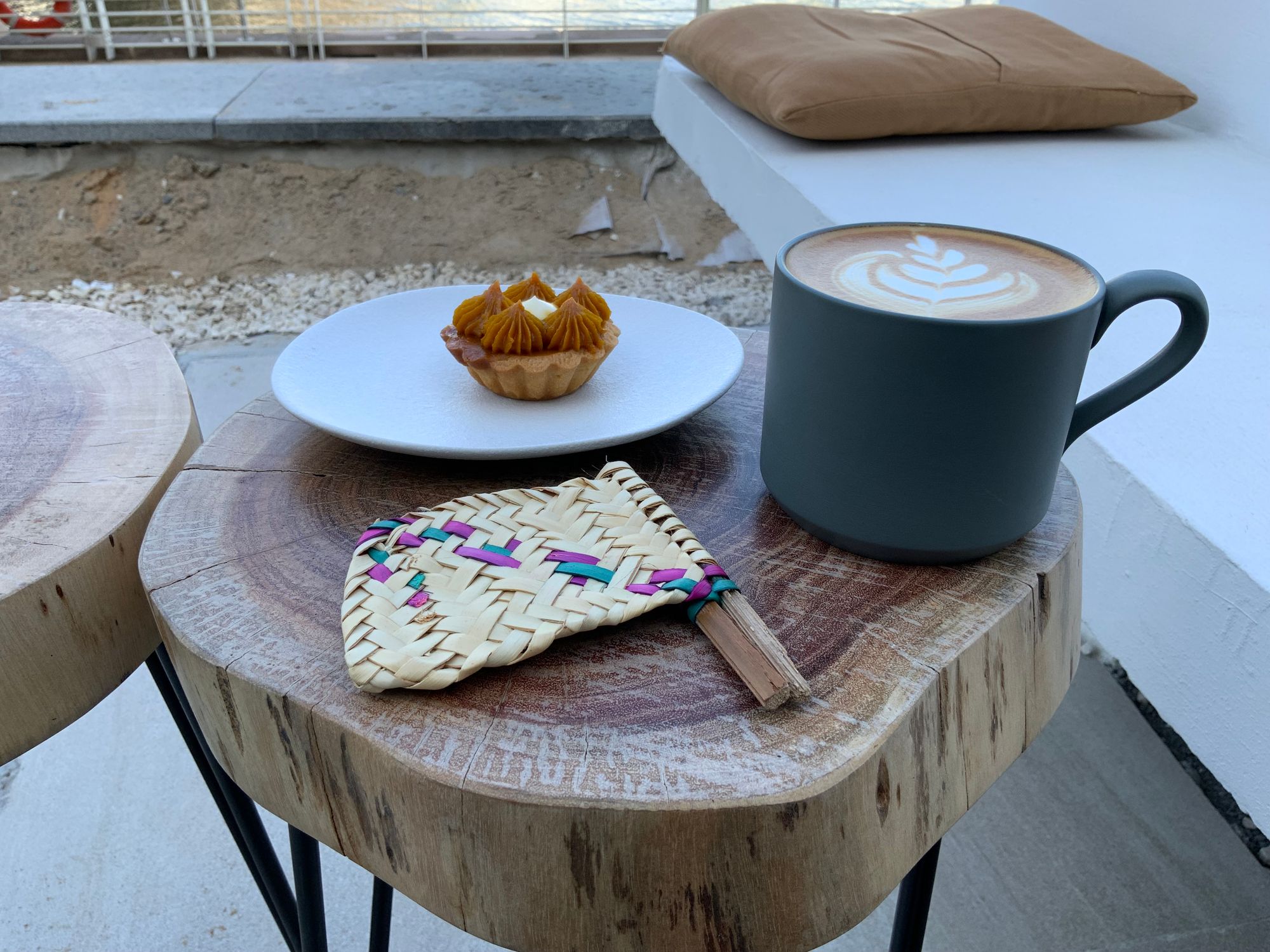
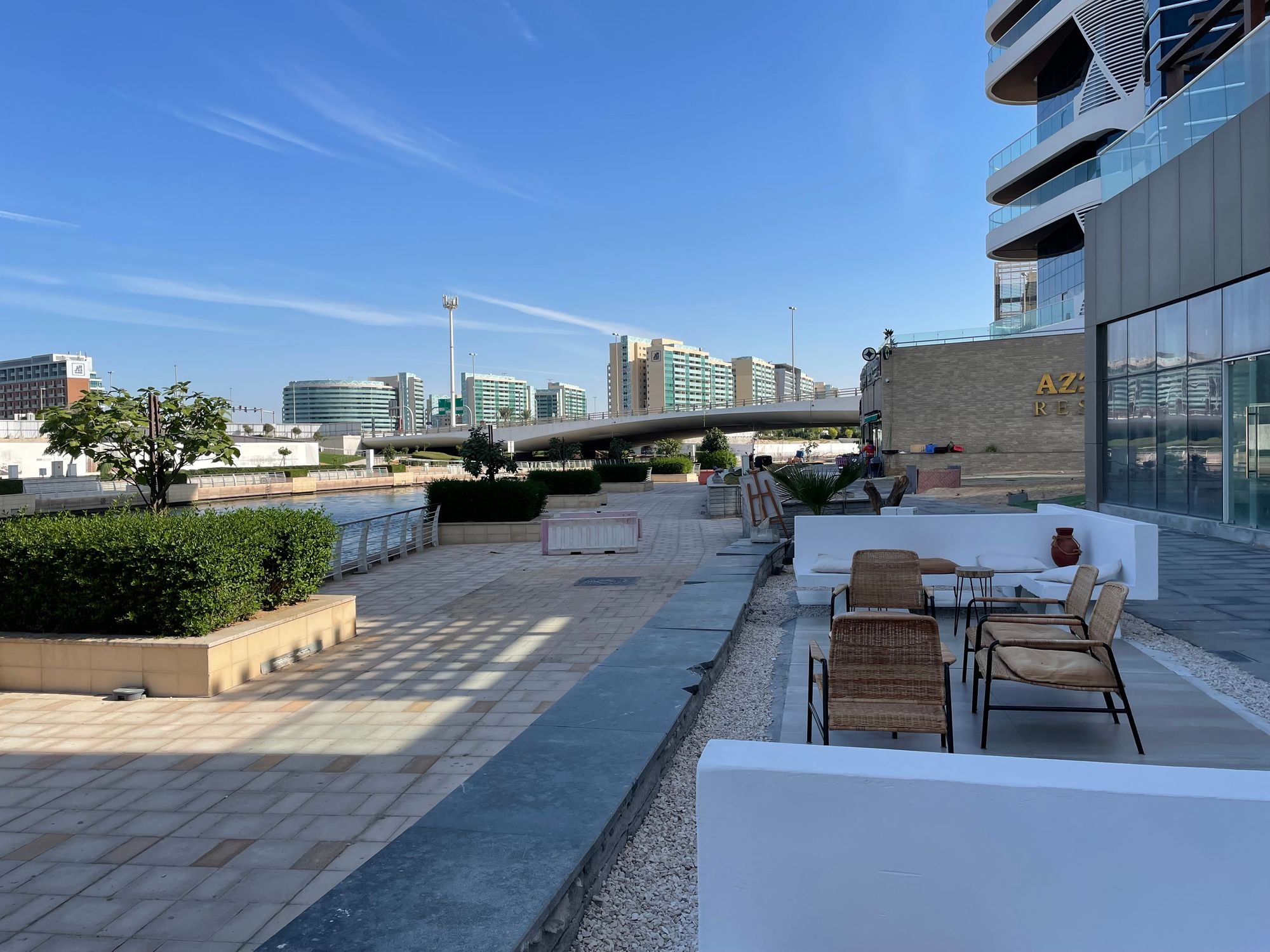
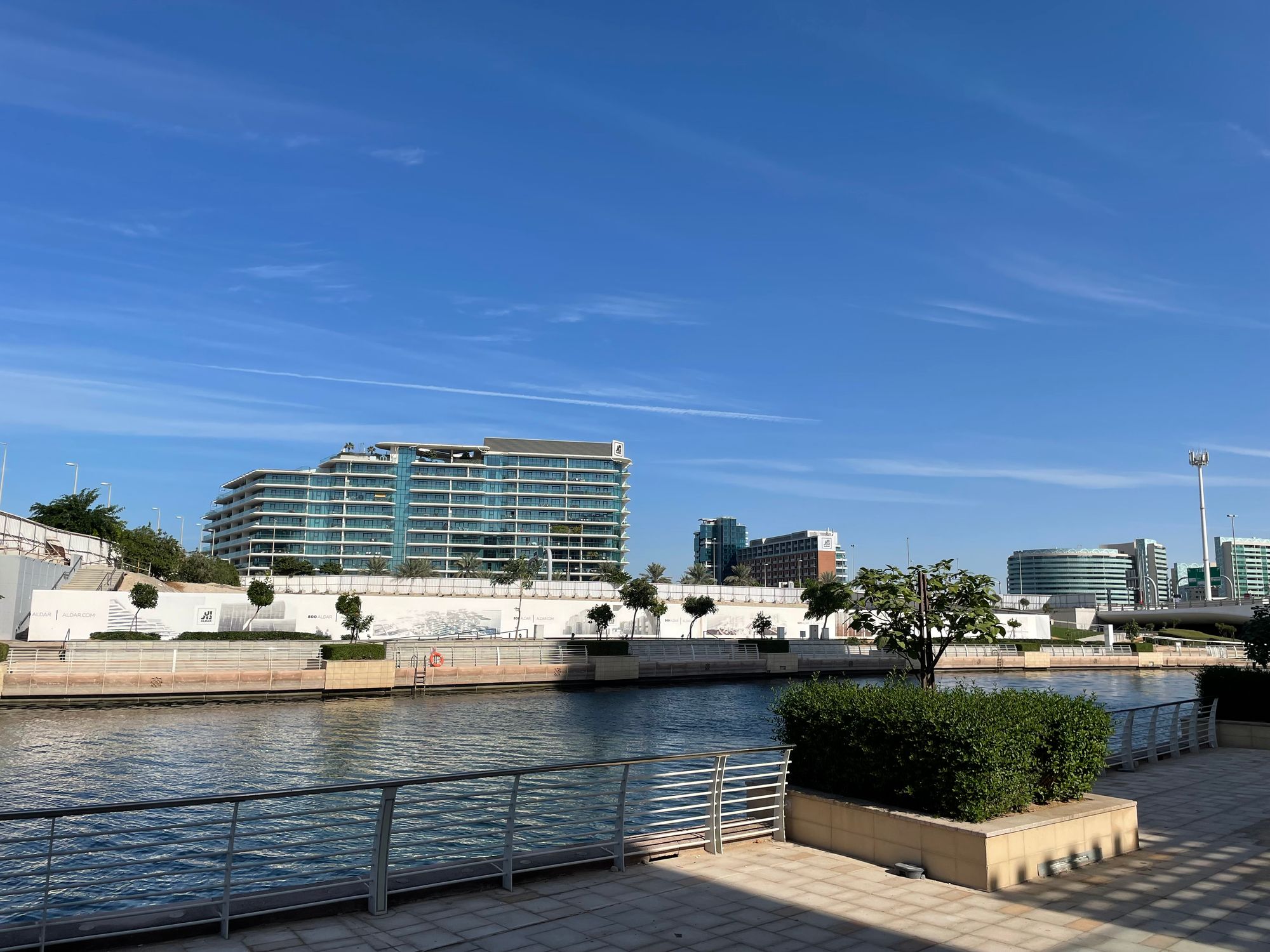
I couldn’t stop thinking about the idea of living or working, or possibly both, in a nearby spot around the cafe. how would it feel to be around a great place like this. By great, I am not talking about the cafe only, but all the surroundings and landscape of “Al Raha” beach and water canals. I couldn’t stop imagining, even after I have long gone from the place, living nearby and visiting this cafe from time to time. I would definitely take it for a whole day remote work spot, as well as for some shot visits like I did on this trip.
The concept of “AlDecha” in this cafe is very similar, if not actually the same, as “AlDakkah” in the local Saudi culture —a place outside the house where people can sit and socialize with their relatives and neighbors. Unfortunately, it has long gone now. Houses started to build walls around them, with even further walls around the hearts of those who inhabit them.
Social Walls
The concept of “AlDacha” and “AlDakkah” have their roots in the Arabian culture which stems from the idea of high socialization with people around you. Some of the houses where I enjoyed my early childhood had those structures in them. They didn’t reflect a simple or pure building structure. They reflected a culture that was common in those days: neighbors and relatives sharing their lives together while spending time in those dacha’s.
People would be setting in their dacha when the sun is still rising towards the late morning, or when the sun is low in the late afternoon. Times would change according to how cool or hot the weather is on the day. But what didn’t change is how my father would always be in his dacha waiting for his friends and neighbors to swing by and spend time with him. My latest memories of these settings are those on the year 1991, when the Gulf War was at its peak. People would gather along with their radios to get news and updates of the war time.
What happened since then have seen a lot of changes across the board of society. Socialization with those around you would be much affected, and simply started to fade away. People built boundaries around them, and those boundaries were rising even more over time. I am sure there was a lot of reasons and dynamics in this move, but I suspect one of these reasons is the fact that socialization started to carry a weight with it. Life was simple so socialization was a default breather for every one. But when life got complicated, socialization caused penalty of complications in the process that made people resort to making less of it.
Before the Coffee Gets Cold: A Novel
The nostalgia that I had while in the coffee and when journaling about it here got me thinking about traveling back in time. Traveling in a trip to the past where I was young and had all the time there is to spend in a “dacha” in front of our house, or the houses of the neighborhood. This was only possible in my home town in the southern region. When I am visiting the recent years, all I found is simply modern houses with walls around them. The dacha has faded away and can be found in very few places of the old houses that are still standing.
A time travel would be a great idea if it existed. A time travel not to change the past, but only to be able to live it and experience it as it was. This brought me to the novel “Before the Coffee Gets Cold” by Toshikazu Kawaguchi, who depicted time travel in a slow pace of the different people who wanted to do it via a shady cafe in Tokyo. I wished this can be true and that I can be one of those guys who can time-travel.
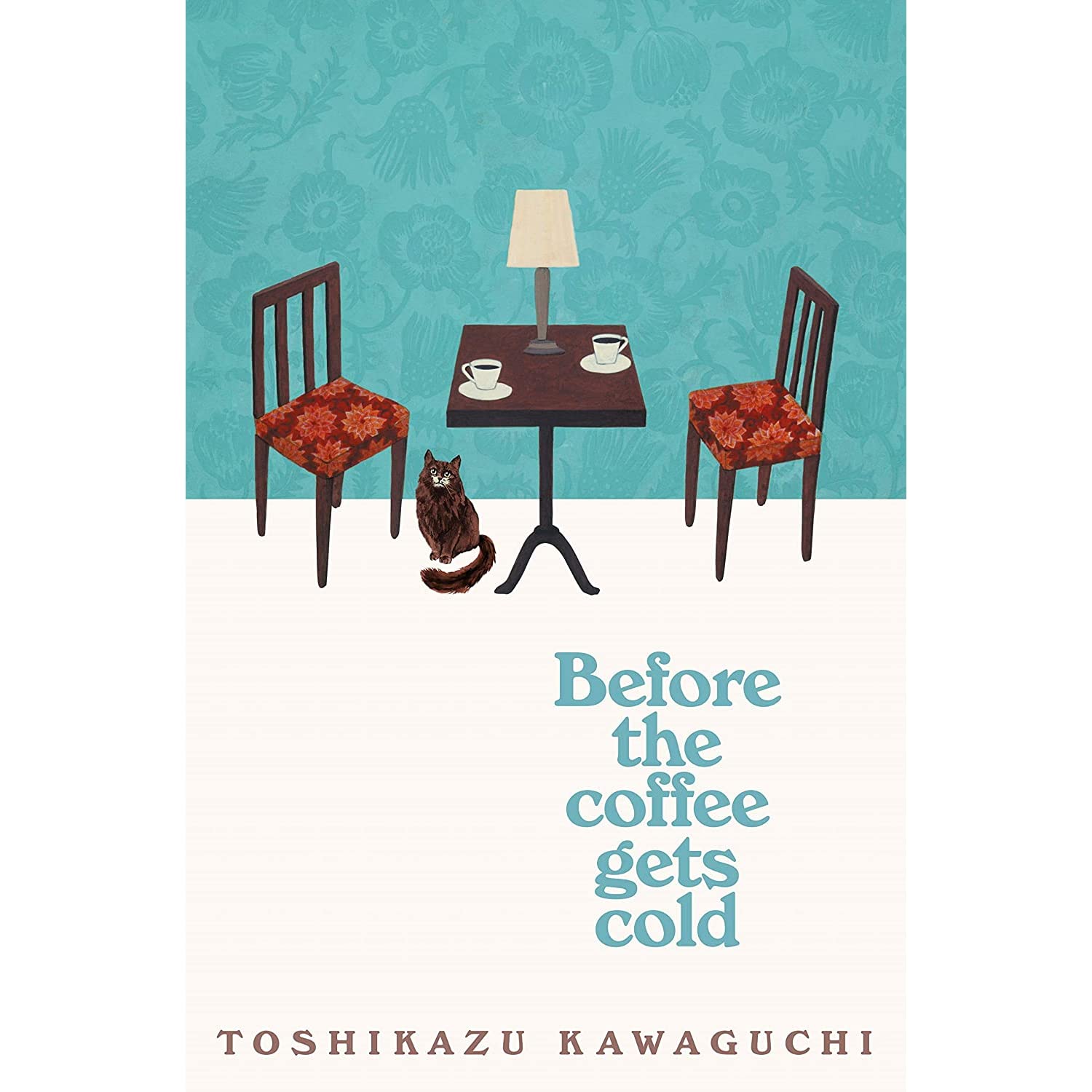
Before the Coffee Gets Cold: A Novel
In a small back alley of Tokyo, there is a café that has been serving carefully brewed coffee for more than one hundred years. Local legend says that this shop offers something else besides coffee—the chance to travel back in time.
Over the course of one summer, four customers visit the café in the hopes of making that journey. But time travel isn’t so simple, and there are rules that must be followed. Most important, the trip can last only as long as it takes for the coffee to get cold.
Heartwarming, wistful, mysterious and delightfully quirky, Toshikazu Kawaguchi’s internationally bestselling novel explores the age-old question: What would you change if you could travel back in time?
The interesting thing is that the rules of time travel as depicted in this novel applied to me to a large degree. "You can't meet people who haven't visited this café. The present cannot change. There is only one seat that takes you to the past, and you cannot move from it. Then, there is the time limit." As Kazu explains in the novel. If only I have the chance to travel to any point in the past, to experience it in a raw fashion, and then come back. I will be happy to do just that.
“At the end of the day, whether one returns to the past or travels to the future, the present does not change. So it raises the question: just what is the point of that chair?”
― Toshikazu Kawaguchi, Before the Coffee Gets Cold
Well, for me it is the experience that I am looking for.. the chance to live it once again for as long as I can!
A few quotes to close with. Enjoy!
“Water flows from high places to low places. That is the nature of gravity. Emotions also seem to act according to gravity. When in the presence of someone with whom you have a bond, and to whom you have entrusted your feelings, it is hard to lie and get away with it. The truth just wants to come flowing out. This is especially the case when you are trying to hide your sadness or vulnerability. It is much easier to conceal sadness from a stranger, or from someone you don’t trust.
― Toshikazu Kawaguchi, Before the Coffee Gets Cold
“People don’t see things and hear things as objectively as they might think. The visual and auditory information that enters the mind is distorted by experiences, thoughts, circumstances, wild fancies, prejudices, preferences, knowledge, awareness, and countless other workings of the mind.”
― Toshikazu Kawaguchi, Before the Coffee Gets Cold

Member discussion